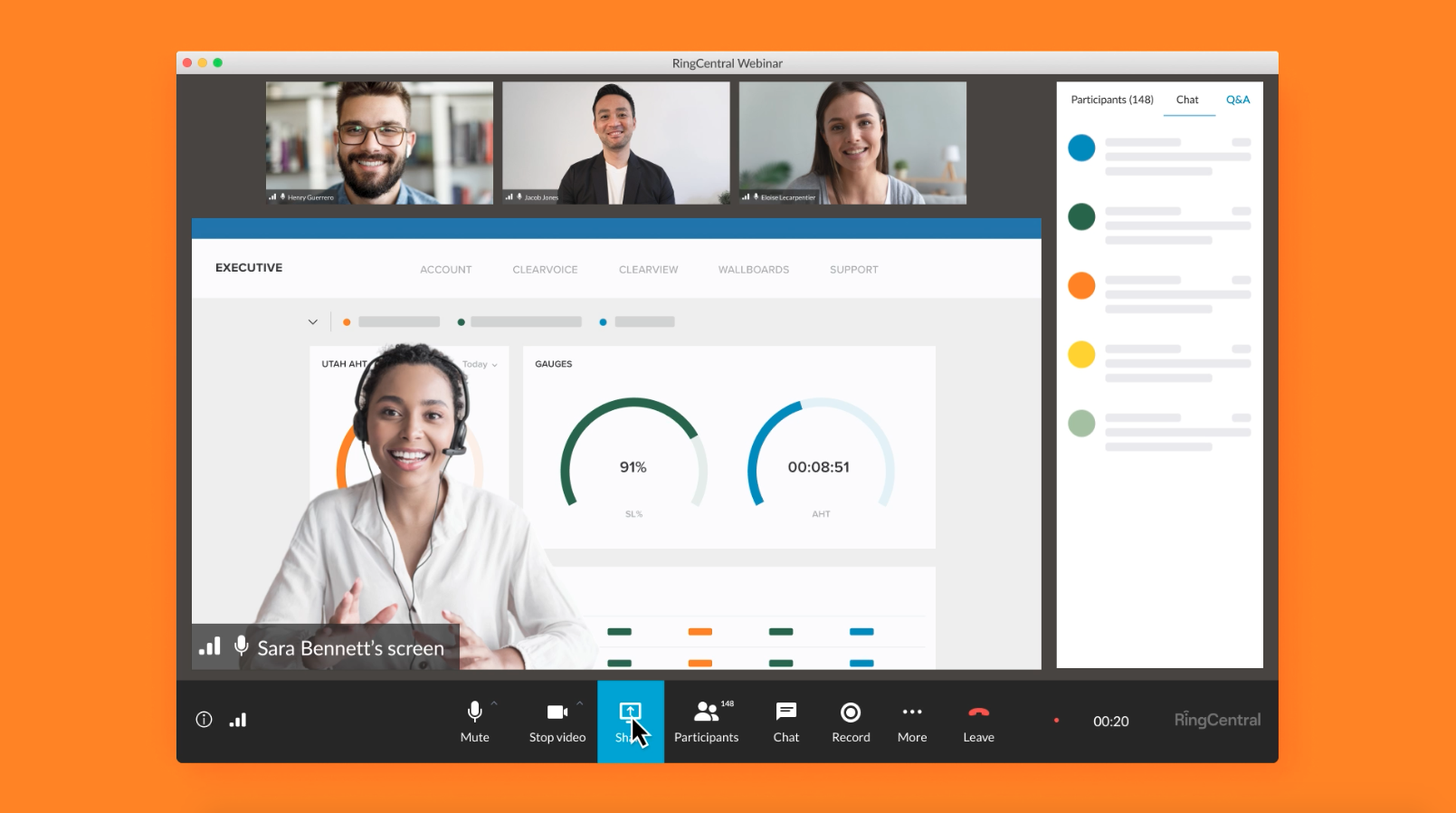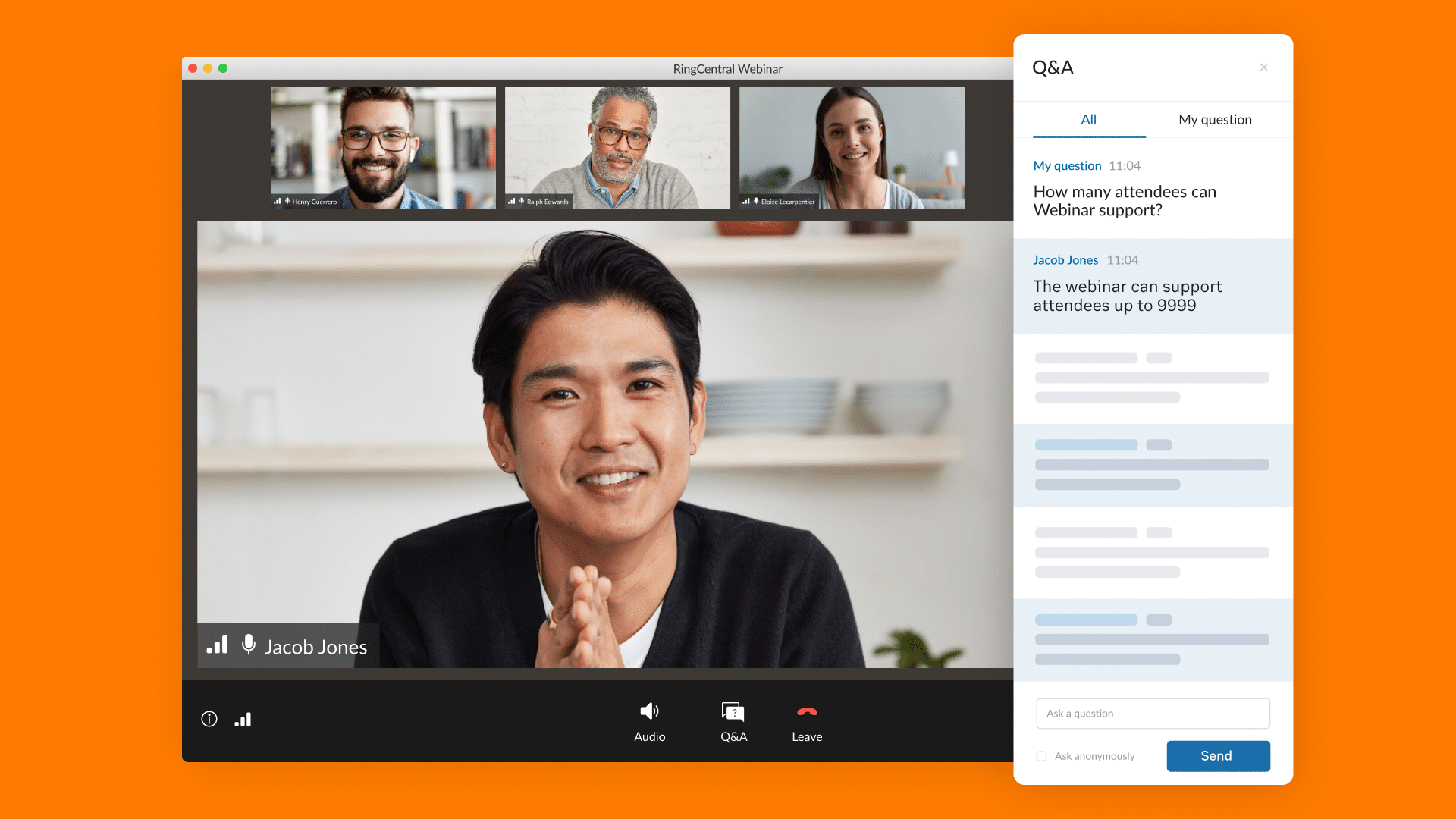It often seems like there’s an ever-growing set of reality shows about the service industry. From “Below Deck” to “Vanderpump Rules,” these shows center around staff members attempting to work as a team –– and the drama that ensues.
While drama can make for good TV, it certainly isn’t welcome during your event. If you don’t hire the right event staff, you run the risk of feeling like you’re embroiled in reality show-like drama.
There are two key questions that quickly come to mind for event professionals staffing and hiring their teams for the first time:
- What roles and responsibilities do I need to fill?
- Where can I find talented, trustworthy professionals to fill those roles?
Read on for the answers to these questions as well as guidance on finding, hiring, and retaining a skilled event team.
Phase #1: Preparing to search for event staff
When it comes to sourcing quality event staff, preparation and research are critical. To determine the roles you need to fill, start by evaluating what worked (and didn’t work) for past events and asking yourself: What kind of event experience am I planning now, and what functions will be critical for success?
Determine when to begin the search
Timing is everything and starting the hiring process at the right time is key to making sure you have all staff in place when you need them. Depending on the type of event you’re organizing and the goals and objectives tied to it, you might want to start your search up to a year in advance.
Review ideal event planning timelines to help determine the best timing for your experience.
Factor in the size and format of the event
Consider the event’s size before you start looking for staff, as this will determine how many people you need for your team. For example, staffing needs for a small virtual webinar will look very different than those of a flagship hybrid event.
Also, consider how staffing requirements shift depending on the event format:
Virtual events typically require fewer staff members than in-person experiences. At a minimum, virtual events tend to require:
- Oversight of and execution on online event marketing activities
- Swag organization and management (depending on the experience)
- Someone to build the virtual event and manage the virtual platform
- Management of tech requirements during planning and tech questions on event day
- Speaker management, including audio and video testing, and ensuring presentations are ready for delivery
Depending on the complexity of the event, you might not need a dedicated individual for each responsibility. Doubling up on responsibilities for a small event can sometimes be efficient and effective.
In-person events will have variable needs depending on the type and size of the experience. Since many of the associated tasks are hands-on, you’ll likely need a larger crew to manage the planning process as well as event-day tasks.
For the average in-person conference, for example, you’ll need people to:
- Manage registration, health and safety requirements, Q&A, and other attendee-facing responsibilities
- Own the event’s marketing strategy and implementation
- Ensure a smooth setup for all tech equipment
- Manage and enforce security measures
- Manage the DJ or band if necessary
- Manage speakers and talent
- Oversee food and beverage needs
- Photograph the event
- Manage the physical venue and liaise with on-site staff
Hybrid events don’t come with a one-size-fits-all strategy. Some are hosted in real-time, while others are asynchronous. Consider how your event is slated to play out when evaluating staffing requirements. When it’s an option, some event professionals will choose to have two teams — one working on the in-person elements and one heading up the virtual experience.
“I really think it’s necessary to have two separate teams — an online team and an in-person team — just because of the workload associated with each,” says Karen Hartline, director of corporate events at GitHub. “Budget is always another consideration when you’re looking at hybrid events because essentially it is two separate events.”
Consider the scope of your requirements and build the team that fits both your event setup and your budget.
Review your event budget
A small budget doesn’t mean you can’t staff your event, but it could require you to be strategic and might impact how quickly you’ll be able to find high-quality talent. If you’re staffing a large, flagship event, you’ll most likely allocate a significant portion of your budget to staffing as it can be a challenge to find volunteers at that scale.
For reference, get a feel for average North American rates, so you have an idea of what to expect.
Understand local hiring regulations
Research local hiring rules and regulations as they may differ depending on the country or state your event staff members are located in. Consider the following when looking up local labor laws:
- Requirements for hiring contractors
- The process for recruiting volunteers
- Any details to be aware of related to having full-time staff working at your event
If you have a legal team, tap into their expertise on the ins and outs of labor regulations before hiring event staff. Pay close attention to any required legal paperwork, make sure you execute a contract with event staff members, and follow all local rules.
Phase #2: Let the event staff search begin
Once you know your budget, the responsibilities you need to staff for, and local labor laws, it’s time to begin your search. But where do you look for team members? Read on for a rundown of some of the most common sources.
Review existing internal team members
Already have an events team at your organization? Lucky you. Even if that’s not the case, you can still look internally for volunteers and stakeholders who are willing to help.
Sourcing staff who are invested in the success of your event and the positive impact the experience could have on your organization is a major benefit. They’ll likely follow through on commitments, and they already understand the organization’s culture and values.
Get recommendations from colleagues
Who better to refer you to high-quality event staff than someone you already know and trust?
“A strong recommendation from a colleague can oftentimes be the best course of action when searching for staff of any kind, as they’ve already been pre-vetted and are attached to an individual who wants to see the event be a success,” Lauren says.
To prevent any hiccups, go through the normal interview process as you’ll want to ensure the recommendation makes sense based on the skills needed for the job.
Consider freelancers
You might find freelancers and gig workers to be cost-effective and flexible, as they might be able to jump in quickly if you’re in a bind.
But starting from scratch when it comes to finding quality freelancers and gig workers can prove trickier than getting internal folks or following recommendations from colleagues. Tap into the following websites to search for available staff:
Despite the perks, recruiting freelance event staff can be risky as it typically doesn’t involve the same vetting process as a full-time employee. One way to reduce risk is to search for staff members using websites that feature reviews for each worker.
Since freelancers take on jobs according to their schedules, onboarding can also be challenging. Syncing the schedules of multiple freelancers so everyone can receive training that’s vital to the event’s success might take some extra effort.
Find volunteers
If you’re hosting a philanthropic event, volunteers might be eager to contribute their service to the cause.
Since volunteers are typically unpaid, the hiring process is a bit different. They’re giving up their time, so it’s essential to be clear about expectations and duties from the start. One way to entice volunteers to help with your event, and not cancel at the last minute, is to provide incentives like:
- Free tickets
- Meet-and-greet opportunities
- Access to VIP privileges
- Perks or swag
- Food and drink
- Gift cards
Note that volunteers may not have the same skill sets as professional event staff. For this reason, it’s key to assign event volunteers to areas that will not produce a domino effect if execution is subpar.
Consider professional event staff
If your experience requires stability and reliability, hiring professional event staff is a sound choice. To go in this direction, consider researching the best event staffing companies in the locations you need staff on the ground (or managing virtual components).
Finding the right event staffing agency is key so here are some to explore as you begin your search:
When searching for staff for hybrid or virtual events, tapping into agencies whose team members already use the platform you’ll be using for your event is likely to produce the best results. This approach will ensure staff members are already familiar with your chosen platform and have event management experience across relevant formats.
Phase #3: Onboarding and debriefing with your event team
Once you’ve moved through the search process (and all the considerations that come with it), you’ll hire your event team and start working on getting them up to speed. Read on for tips on staff training, management, and post-event follow-up.
Host a kickoff meeting to set expectations
No matter what type of event you’re organizing, you’ll want to meet and train all your event staff and lay a strong foundation by clearly communicating firm guidelines for your team to follow. This will keep all staff on the same page and give the team visibility on each team member’s responsibilities.
Give yourself — and your team — the confidence the event will go off without a hitch by providing them with a one-pager that shares each person’s role and responsibilities. Knowing who does what will help them reach the right person if something goes awry.
Set up avenues and protocol for event-day communication
Streamlined event-day communication is key to a positive outcome. A strong event team should only be a few minutes away from extinguishing any proverbial fires.
“The lines of communication should be set in advance with each staff member having their mode of communication at their fingertips at all times,” Lauren says.
For virtual events: Create a channel in Slack, WhatsApp, Skype, Microsoft Teams, RingCentral app or any other communication platform you typically use to share updates with team members. Designate a separate channel to communicate any attendee tech questions or speaker tech questions. This will help avoid confusion and allow staff members to quickly send updates to the speaker or attendee in question without interrupting any of your event communication.
For in-person events: Ideally, your team would use walkie talkies or some form of radio so they can communicate instantly the day of the event. Walkie talkies are useful communication tools because they provide immediate access, which can be a life-saver in high stakes situations. Otherwise, think about creating a WhatsApp or SMS group so everyone can be reached quickly.
For hybrid events: You’ll want a communication platform that can be accessed by both in-person and virtual staff and attendees. What’s important here is that everyone can receive updates in real-time. Consider creating a communication hub where both your virtual and in-person teams can connect. The common denominator between both teams will likely be their phones, so setting up the hub in a Slack or WhatsApp group might simplify communication.
Post-event communication
After the event ends, consider keeping open lines of communication with your event staff so you can address any concerns or feedback. If the staff members you brought into the fold were successful in their roles, you might also want to maintain a connection so you can hire them again for future events.
End the experience on a high note by meeting with your staff to congratulate them on their teamwork and for putting on a fantastic event. Along with showing your gratitude, hold a post-event debrief session for everyone to reflect on their performance, what went well with the event, and what could be improved for next time.
It takes a village to put on a best-in-class event
Whether you’re hosting your flagship event or an intimate webinar, finding trustworthy people to count on before and during the big day can be the difference between a flop and a slam dunk
Dodge any potential drama by being thoughtful about how you staff your events –– and taking the time to hire the right professionals.
Our event specialists can help. Contact a member of the RingCentral Events team today to get top-notch support for your next virtual, hybrid, or in-person experience.
Originally published Sep 01, 2022, updated Oct 20, 2024





